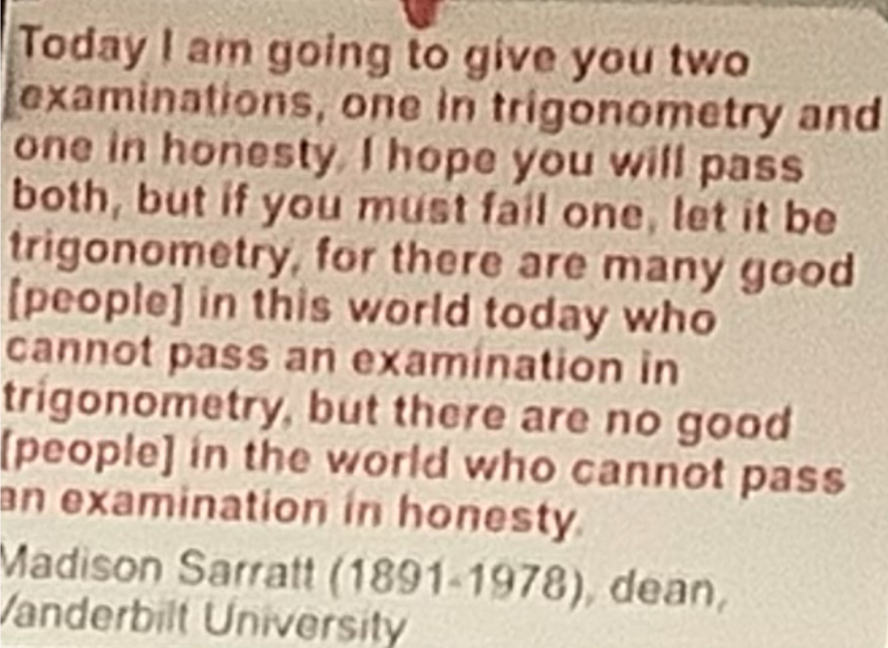Academic Honesty Week
This past week at Benet Academy was Academic Honesty Week. Academic honesty means completing all work without cheating, plagiarizing, lying, or tampering. Mr. Dirienzo, a Benet Academy history teacher, defines academic honesty as “Doing your work and focusing on the process rather than the results.” This issue is highly relevant at Benet Academy because of the rigorous workload students receive. Overall, the purpose of this week for the student body is to stress the importance of being academically honest.
Students at Benet Academy have numerous encounters with the temptations of cheating daily. Each time, they are allowed to say no and be academically honest. Junior Lily Joy Santos said, “Cheating doesn’t really get you anywhere. We all want good grades, but cheating won’t help you learn the material that you need for other tests or other circumstances later in life.” In the long term, academic dishonesty is not worth it. There is nothing gained in cheating other than short-term satisfaction.
Mr. Veselik, a Benet Academy religion teacher, is famous for saying to his students before quizzes, “It’s better to grow in virtue than to get a good grade.” Teachers and other faculty, along with some students, acknowledge cheating will not lead anywhere good, whereas honesty will. Dean Cabay said, “Being honest in academics here at Benet will ultimately pay dividends when [students] become a student in college.” Academic honesty pays off in more than only academics here at Benet Academy but also in the workforce and whatever students choose to do after graduation. It teaches students self-reliance and helps them to form their own moral compass.
This week, students are reminded in various ways why it is essential to be honest in their schoolwork and not cheat. Posters are put up in the hallways, discussing virtues such as integrity and honor. During the announcements, students hear guest speakers talk about their academic honesty experiences. These speakers include teachers, staff, and fellow students. One such speaker was Mr. Perez, Assistant Principal of Student Affairs, who said, “Academic honesty tells about our moral character and helps create practices that form our character, as well as good, honest lives.”
Overall, Academic Honesty Week encourages students to be responsible and honest in their work. It teaches students to rely on themselves, to trust their work, and instills virtues in the students they will use for the rest of their lives.








